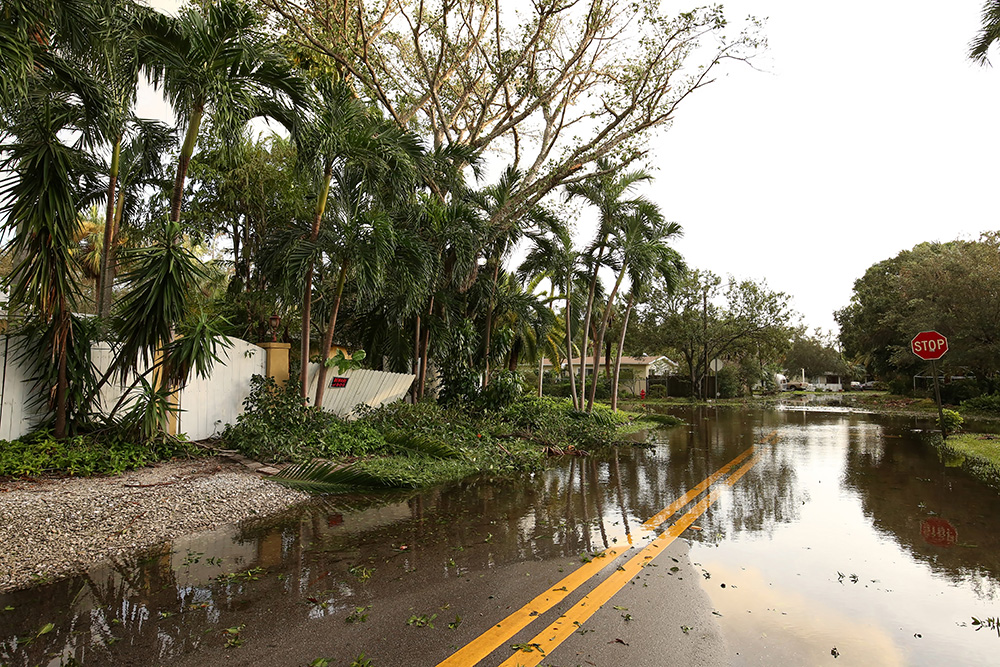Like any natural disaster, flooding isn’t an experience anyone wants to face.
It can cause loss of life, loss of property, and significant damage to houses and other buildings.
With major floods in 1893, 1974 and most recently in 2011, it’s a well-known fact that many houses in Brisbane are located in flood-prone areas.
The recent 2011 floods led to increased calls for transparency and freedom of information about flood-prone areas across the Brisbane City Council. The council responded accordingly, making this information easily accessible for anyone who wants to avoid buying a flood-prone property in Brisbane.
This article explains how you can use the council’s tools and other methods to learn whether a property you want to purchase is located in a flood-prone area, ensuring you can make an informed choice about whether or not you’re willing to buy.
Why worry about flooding?
The city of Brisbane is located in a flood plain. Several suburbs sit in low-lying areas that can be affected by rising water levels in the Brisbane river. These areas have been flooded on a number of occasions – most notably in the major floods of 1893, 1974 and 2011.
The 2011 Brisbane floods inundated about 20,000 homes in the Brisbane City Council area. In addition to dealing with the heartache of losing possessions and precious family items, many families living in flooded areas had their properties damaged or even completely destroyed. Some lost family members.
Unfortunately, for many people, this initial disaster was followed by insurance headaches and the stress of rebuilding their lives and homes. If all that sounds like something you’d rather avoid, then it makes sense to avoid buying a flood-prone property in Brisbane.
Get a “FloodWise Property Report”
The most straightforward way to check whether a property you’re considering is located in a flood-prone area is to get a FloodWise Property Report from the Brisbane City Council. This is a free and instantaneous service available online at this link.
Based on information from previous floods as well as flood studies using flood computer modelling, FloodWise also considers the risk of flooding from any nearby creeks, not just the Brisbane River.
If the house or block of land you’re looking at is not considered to be at risk of flooding, your FloodWise Property Report will state that there are no restrictions on the property. This is the case for most Brisbane properties, but it always pays to check.
If the property you’re looking at has been subject to previous flooding or is considered to be at high risk of flooding in the future, the report will include additional information such as projected flood levels above mean sea levels, the flood level in 2011, and the lowest and highest points of the land on your chosen property. Everything is explained in additional detail on the report, giving you the information you need to make an informed decision.
Other options
I believe that if a property has been subject to flooding in the past, the real estate agent should tell you this from the beginning. They should also be able to tell you where on the property any flooding took place. However, not all agents will take this approach, so it’s still important to seek out information yourself. That said, the first step is to simply ask the real estate agent straight out: “Has this property been subject to flooding before?”
If you’re looking at a property outside the Brisbane City Council (for example, in Ipswich), ask the relevant council if you can get a flood report. Often these are free, but even if they’re not, it’s worth paying to get one so you can make an informed decision and enjoy greater peace of mind.
You can also take the old-fashioned approach and door knock the neighbours along the street. Ask them if the area has flooded in the past, when it flooded, why it flooded, and where the water levels rose to.
What if you still want to buy?
Even if you discover that a property is in a flood-prone area or that it’s been flooded in the past, you may still have your own reasons for wanting to buy it.
If you’re seriously considering a flood-prone property, ask your insurance company if they’ll actually cover it. There’s certainly no point buying an at-risk property if you can’t get insurance for it, so always double-check first.
You should also keep in mind that buying a flood-prone property will create issues with future resale as the property will be more difficult to sell than a flood-free house.
Ultimately, you need to understand the risks and decide whether you’re happy to take them. This is a decision only you can make, but be sure you do everything you can to learn about the property so your ultimate decision is an informed one.
Conclusion
If you have any questions about anything covered in this article, The Henry Wong Team can help. Simply give Henry a call on 0412 471 588.
Disclaimer:
The information in this article is general in nature and does not take into account your situation, objectives, or needs. It should not be considered to constitute legal advice.




